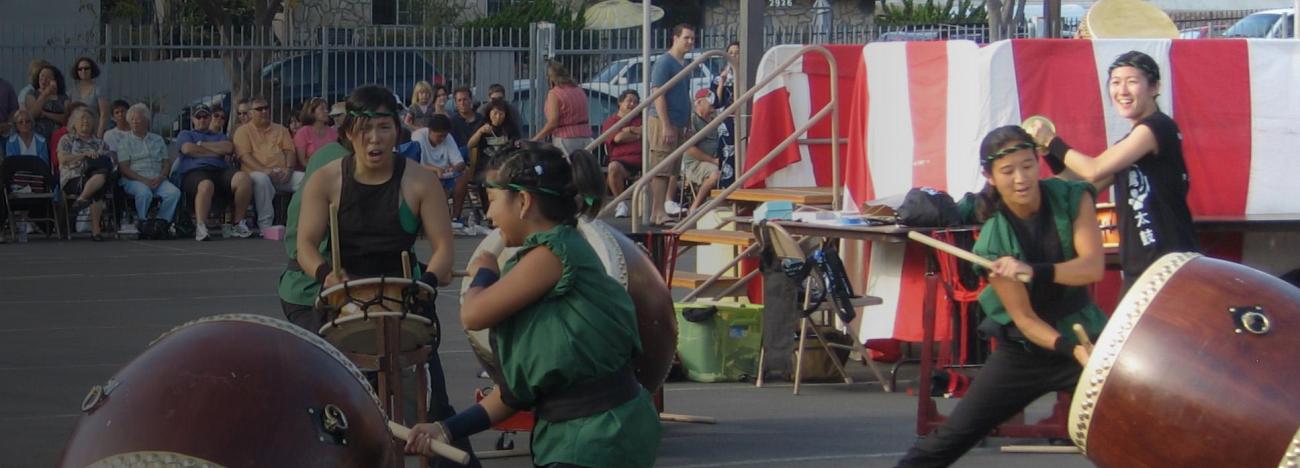
The Japanese Diaspora: Peoples of Japanese Descent in the Americas
Since the late 1800s, Japanese have migrated around the world, and their descendants have become ethnic minorities in various countries as part of the Japanese diaspora. This project will compare the two largest groups of Japanese descendants in the Americas: Japanese Americans in the U.S. and Japanese Brazilians in Brazil. Although these two minority groups originated from the same homeland of Japan, because they have been living in separate countries for generations, their contemporary ethnic status and identities are quite different, though also sharing some similarities. Such research helps social scientists understand how the ethnic minority experiences of diasporic peoples are partly determined by their immigrant origins and ethnic ancestry, but also by differing race relations in the countries where they were born and raised.
Project Details
This research project will examine the Japanese diaspora, which consists of Japanese descendants dispersed throughout the Americas (also known as Nikkei), by comparing Japanese Americans in the United States with Japanese Brazilians in Brazil. The different ethnic and diasporic experiences of Japanese Americans and Brazilians will be comparatively analyzed in the varying ethnoracial contexts of the United States and Brazil. The two main research objectives are to investigate: 1) whether Japanese Brazilians have stronger “Japanese” minority identities and a greater attachment to their ethnic heritage than Japanese Americans, and 2) whether Japanese Brazilians maintain stronger transnational, diasporic attachments to their ethnic homeland of Japan and have greater affiliations with other Nikkei co-ethnics in the diaspora when compared to Japanese Americans. The impact of Japanese Brazilian labor migration to Japan on the sending community in Brazil will also be examined in contrast to the absence of such migration in the Japanese American community. The project will explore how such ethnic differences between these two Japanese-descent Nikkei groups are the result of differing race relations, ethnic stereotyping, and patterns of discrimination in the United States and Brazil as well as the geopolitical positioning of these two countries in the global order. It will be based on 18 months of multi-sited fieldwork in both countries that is designed to overcome the “methodological nationalism” endemic in social science research, which continues to analyze even transnational social phenomena such as diasporas within the boundaries of one nation-state. In-depth, semi-structured interviews will be conducted using diverse, nonprobability samples of Japanese Americans and Japanese Brazilians as well as mainstream (non-Nikkei) individuals. Through participant observation, data will be gathered about Nikkei organizations, events, festivals, cultural activities, performances and daily lives.
Research Team
- Takeyuki Tsuda, Arizona State University
Funding
Funding will be sought from National Science Foundation, Fulbright, Wenner-Gren and American Council of Learned Societies.
Outcomes
2020 “The Japanese Diaspora in the Americas and the Ethnic Return Migration of Japanese Americans.” In Global East Asia, Frank Pieke, Alexis Dudden, and Koichi Iwabuchi, eds. Berkeley: University of California Press.
2020 “The New Second Generation: Biculturalism and Transnational Identities Among Japanese American Shin-Nisei.” In Japanese American Millennials: Identity, Community, and Culture, Michael Omi, Jeffrey Yamashita, and Dana Nakano, eds. Philadelphia: Temple University Press.
2019 “Japanese American Ethnic Return Migration Across the Generations.” In Diasporic Returns to the Ethnic Homeland: The Korean Diaspora in Comparative Perspective, Takeyuki Tsuda and Changzoo Song, eds. New York: Palgrave Macmillan. (Refereed volume)
2016 Japanese American Ethnicity: In Search of Heritage and Homeland Across Generations (314 pages). New York: New York University Press.
2015 “History and the Second Generation: Differences Between Pre and Postwar Japanese American Nisei.” In Identity and the Second Generation: How Children of Immigrants Find Their Space, Faith G. Nibbs and Caroline B. Brettell, eds. Nashville, TN: Vanderbilt University Press, pp.17-46. (Refereed volume)
2015 “Recovering Heritage and Homeland: Ethnic Revival among Fourth Generation Japanese Americans.” Sociological Inquiry 85(4):600-627.
2014 “‘I’m American, Not Japanese!’: The Struggle for Racial Citizenship Among Later-Generation Japanese Americans.” Ethnic and Racial Studies 37(3):405-424.
2012 “Disconnected from the ‘Diaspora’: Japanese Americans and the Lack of Transnational Ethnic Networks.” Journal of Anthropological Research 68(2):95-116.